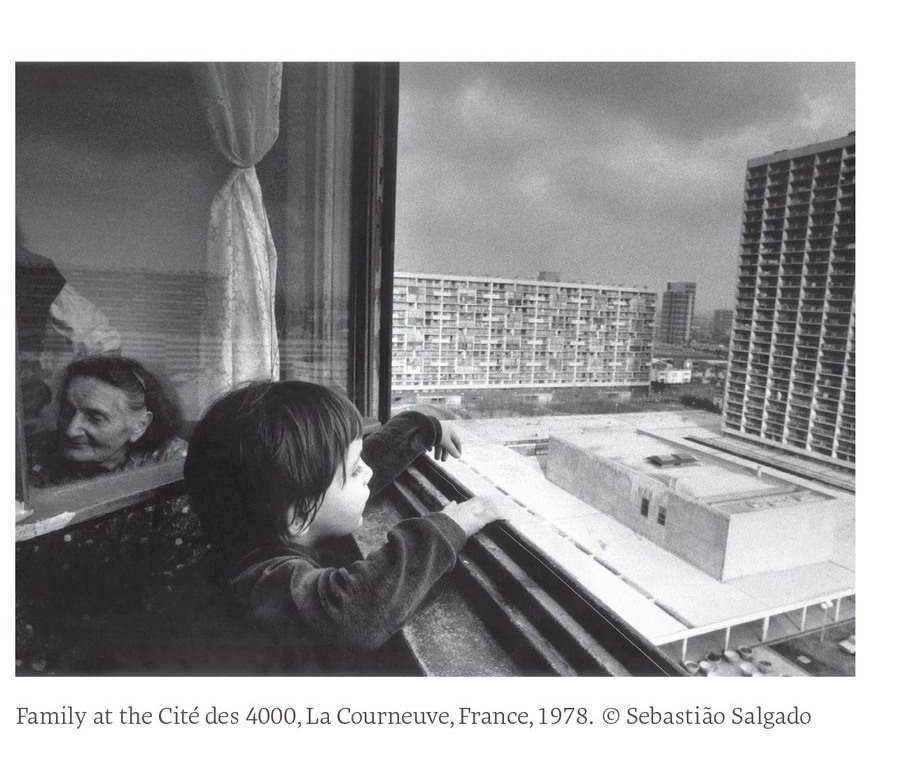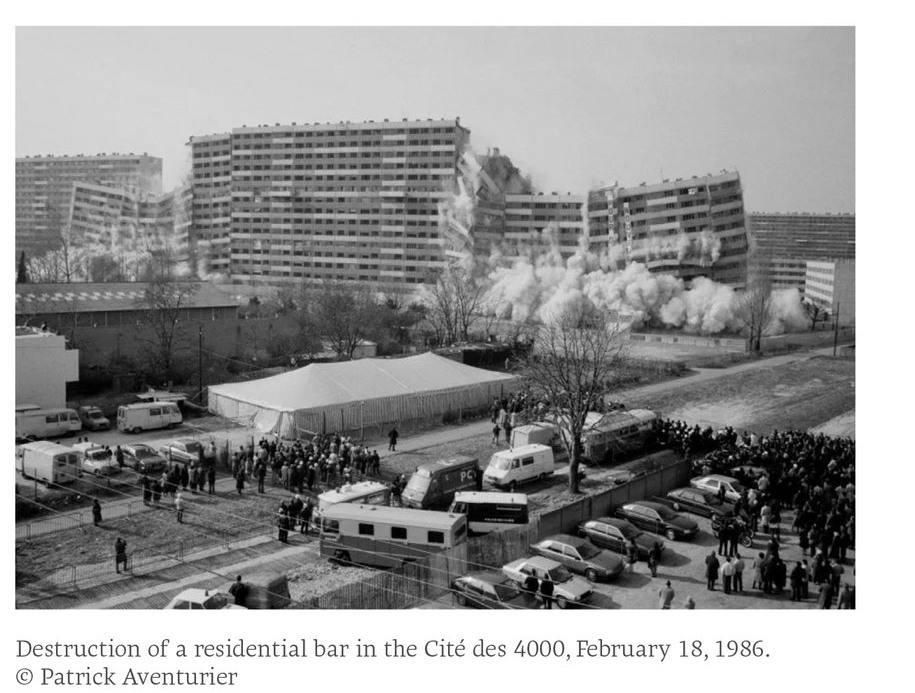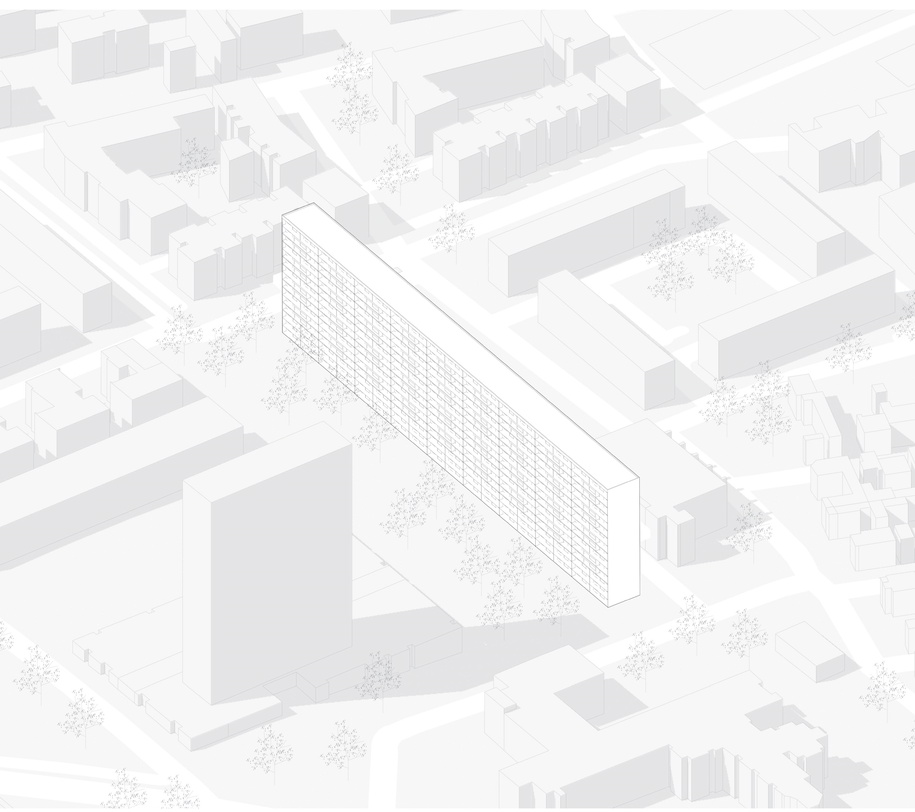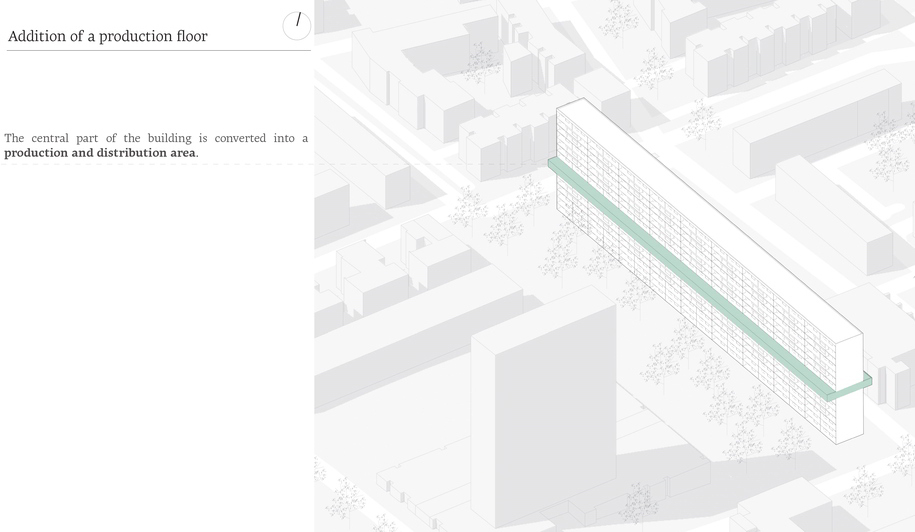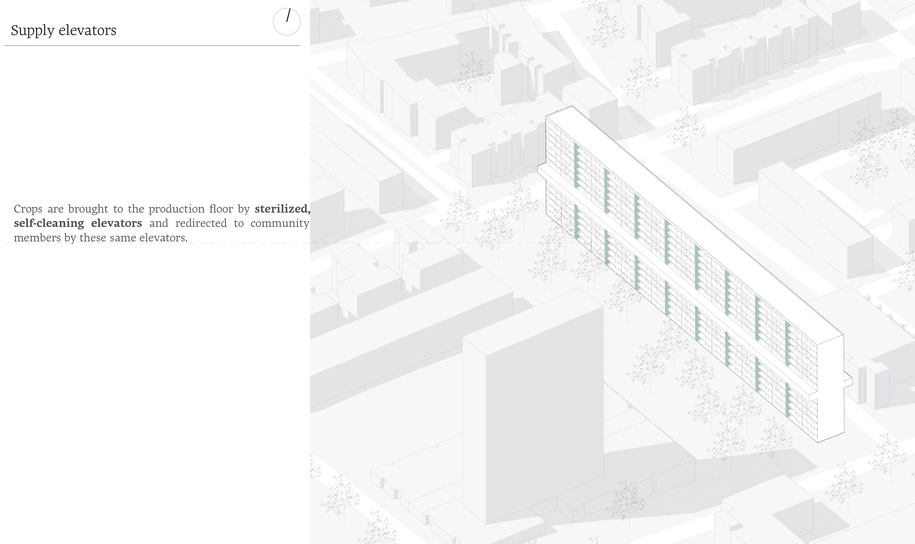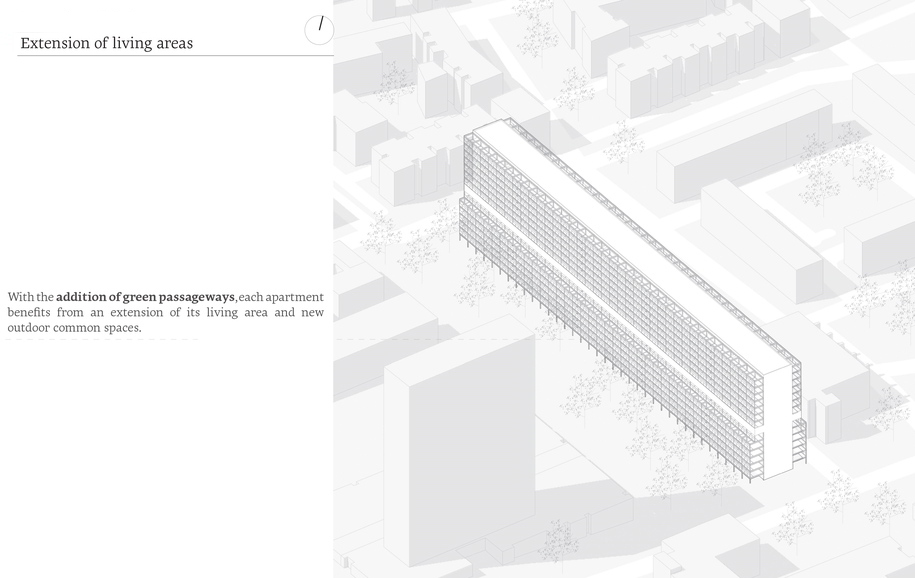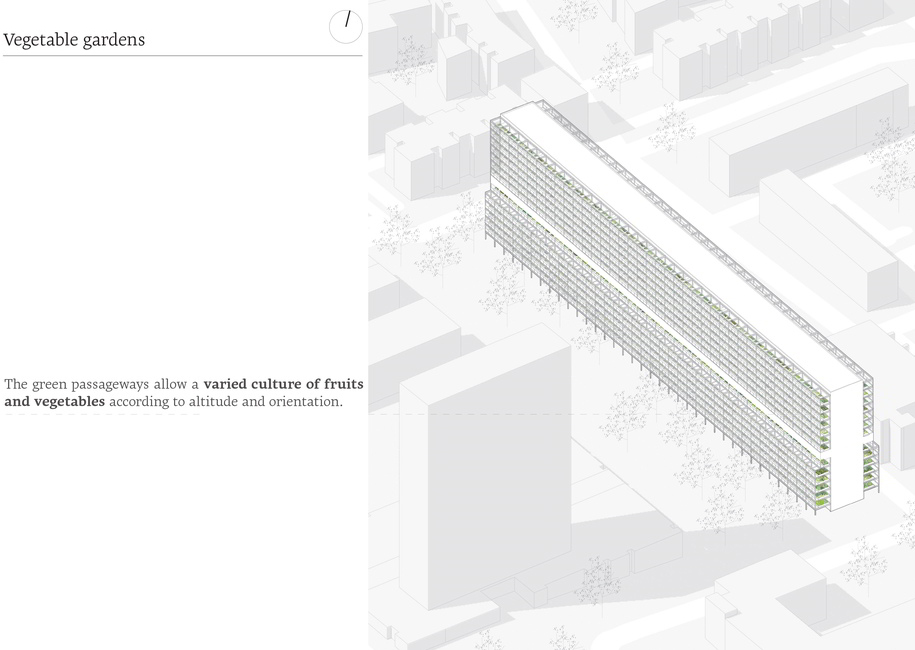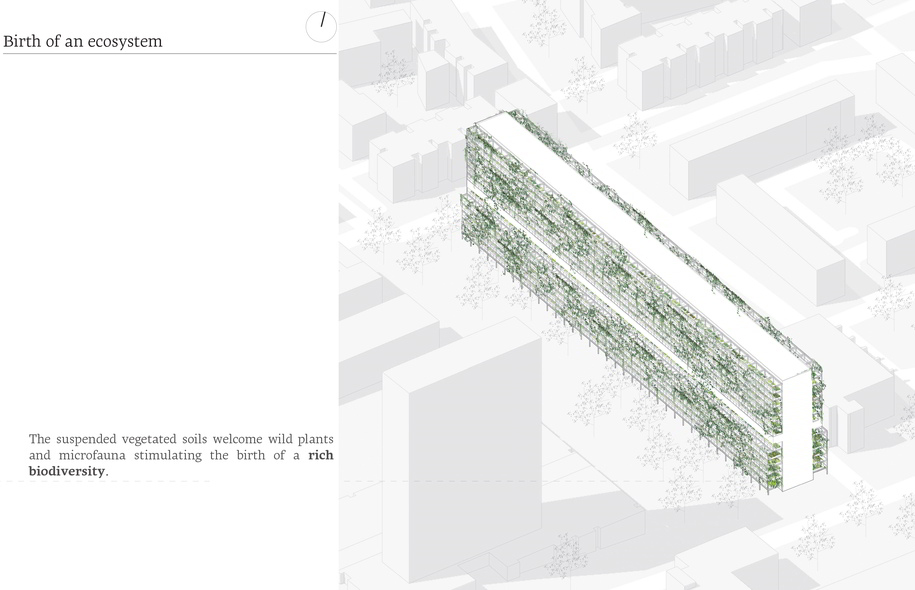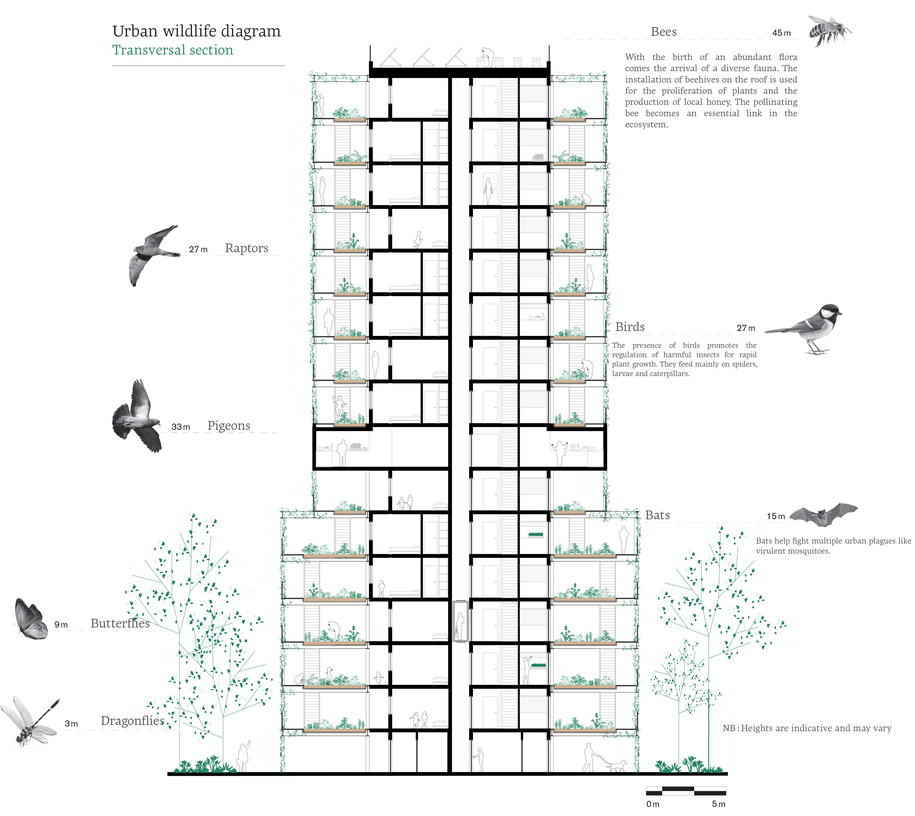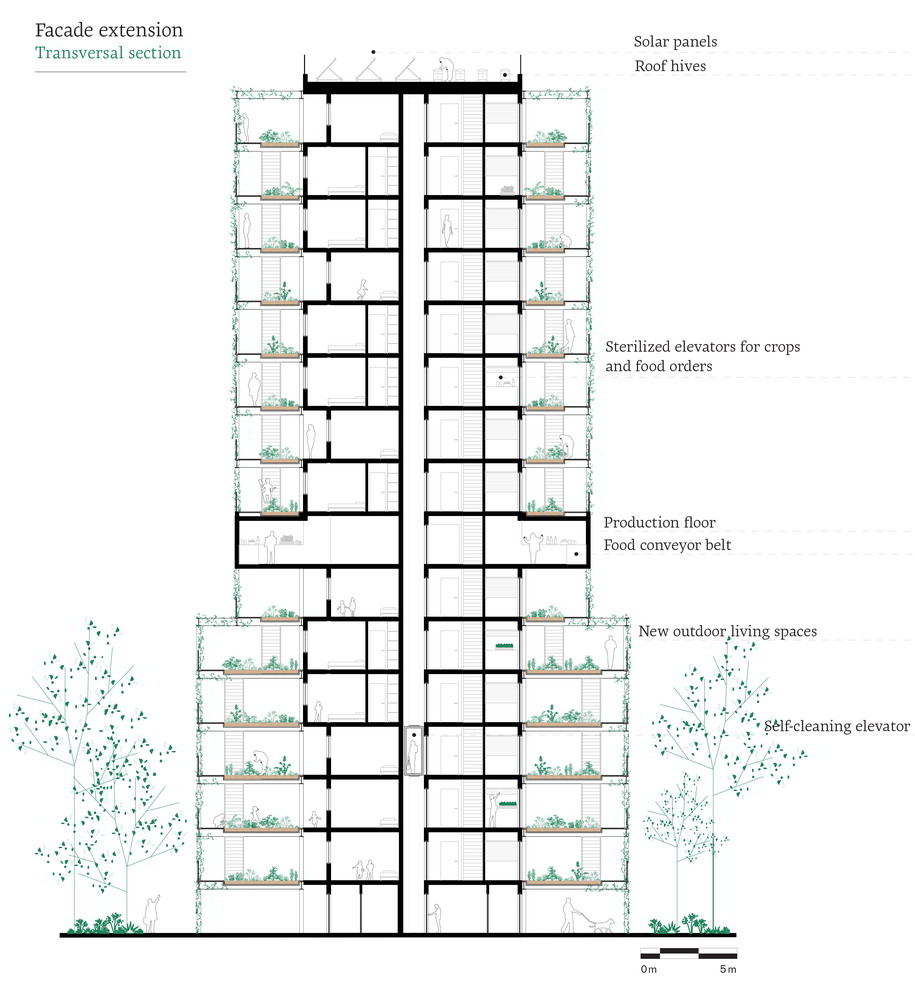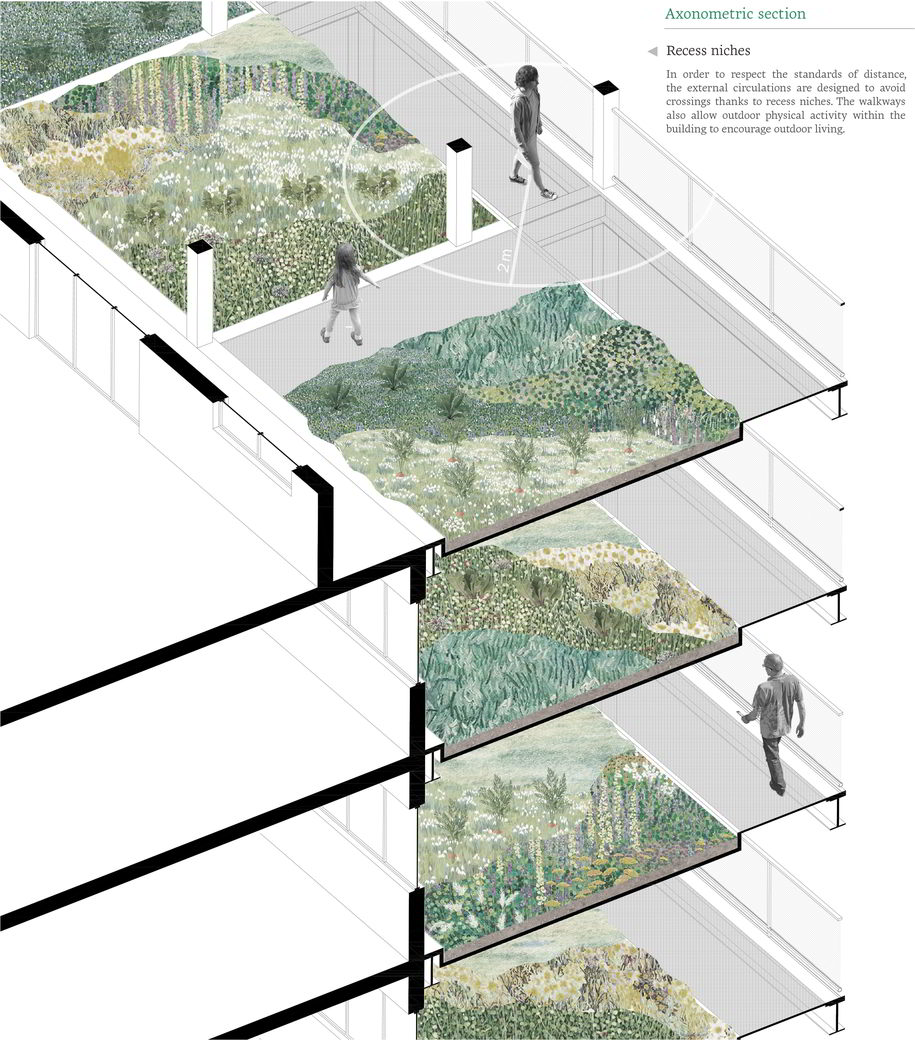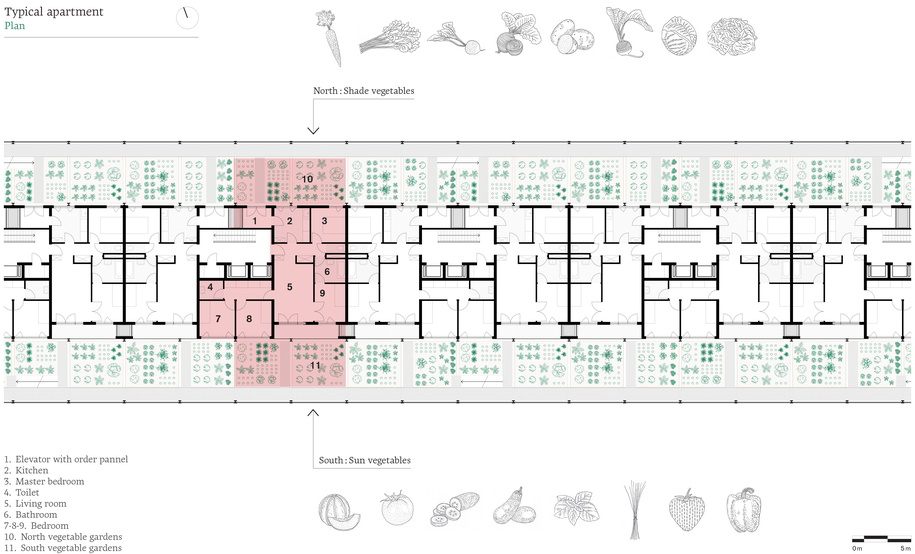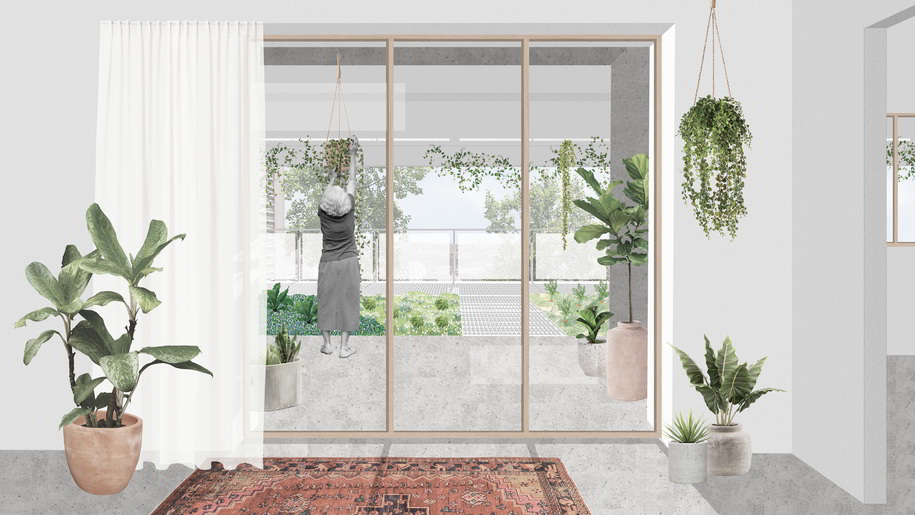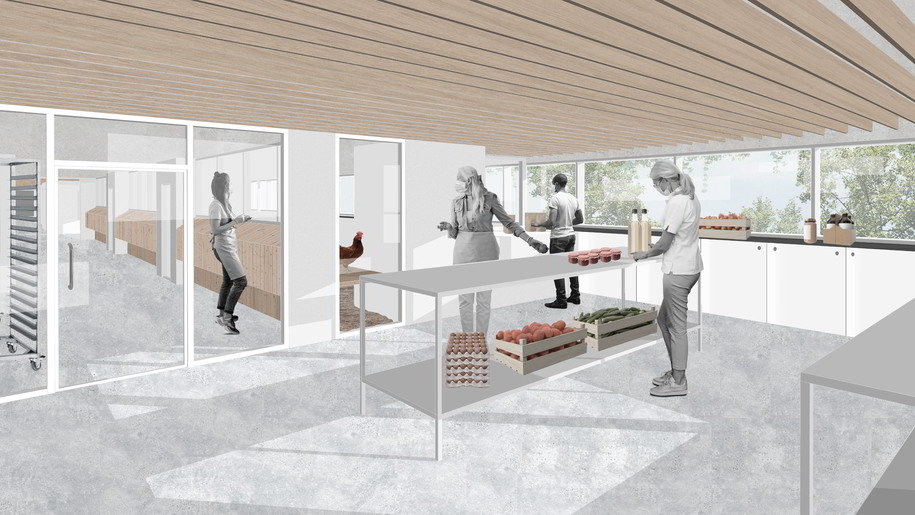Pandemic Architecture, an International Ideas Competition curated by the Design Ambassador for ARCHISEARCH.gr, invited the creative community to open up a dialogue and create a think tank, looking for ideas from the architectural and design community about the future of the living, the workspace, the public space and the tourism industry after the outbreak of Covid-19.
Large Housing Developments in times of pandemic, was shortlisted in top 50 out of 440 projects.
Due to the current health crisis, most of the world is forced into a radical restructuring of its environment. The state of emergency and the ensuing hygiene protocols quickly generated a sense of fear and withdrawal.
Although several solidarity initiatives offer help to communities, the situation can become unbearable for groups of individuals in precarious situations. Thus, do we all stand equal as we face a pandemic?
In France, the inhabitants of popular suburbs are particularly affected by the constraints related to the pandemic: economic precariousness, cramped housing, difficulties in accessing digital technology and tensions with the police have deteriorated life in large housing developments in the past few months.
It should be remembered, however, that the large housing developments were built massively from the 1950s to alleviate the housing crisis and the insalubrity of working-class neighborhoods.
Yet, just a few years after their emergence, large housing estates are already the subject of numerous criticisms: The lack of privacy and cultural facilities, architectural monotony and the concrete landscape seem to weigh heavily on the mental health of their residents.
Today, the pandemic once again demonstrates that these post-war constructions represent an outdated urban model. In this sense, how can these structures be transformed to provide the community with the necessary tools to face the pandemic?
Built in 1948, the “Cité des 4000” in La Courneuve is widely stigmatized by politicians and the media as a “problem suburb”. Since then, many
architects have imagined solutions to repair this bruised architecture.
Among them, the French agency Lacaton & Vassal conducts in 2010 a study on the “Mail de Fontenay”, one of the building of the “Cité”, by proposing the
addition of prefabricated modules on the facade, allowing an extension of the living area and the installation of winter gardens.
Although the project was not built, this idea seems more relevant than ever in these times of pandemic.
By reusing this extensive system, we propose to implant vegetable gardens to the façade and transform the building into a food production center.
These gardens allow a varied culture of fruits and vegetables according to altitude and orientation.
Residents’ crops are brought to a production floor through a system of sterilized and self-cleaning elevators.
After being decontaminated and processed as needed, food is redirected to the apartments by these same elevators.
Based on a principle of community life, the inhabitants ensure the operation and the supply of the production center.
With the addition of green passageways, each apartment benefits from an extension of its living area and new outdoor common spaces.
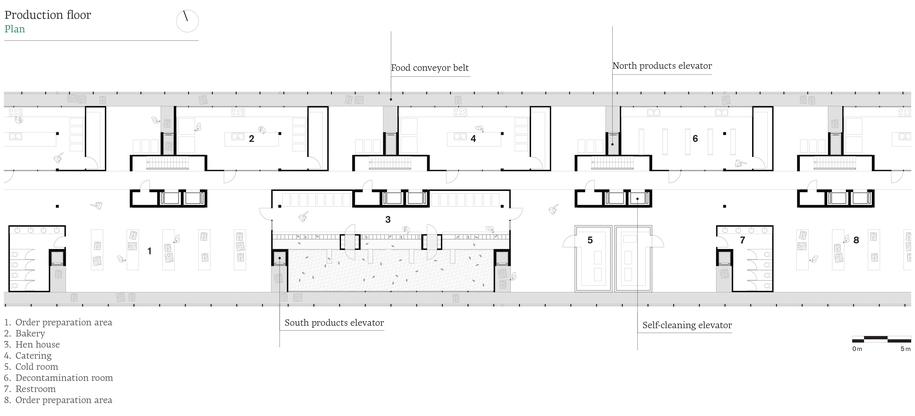
Furthermore, the suspended vegetated soils welcome wild plants and microfauna stimulating the birth of a rich biodiversity.
By reworking this extensive system, we aim to transform the “Mail de Fontenay” into an “urban ecosystem”.
Facts & Credits
Participants: David Blanc
Marie-Ève Fortier
Country: Canada
France
The project was shortlisted in top 50 out of 440 projects.
The impact of Pandemic Architecture competition on the international architectural community was astonishing, with the number of registrations to exceed 800, with the final proposals to exceed 400 and with participants from more than 60 different countries.
Results will be officially announced on the 25th of September.
_________________________________________
Check out the open call and the jury here!
READ ALSO: PAN HOME | Pandemic Architecture Top50
